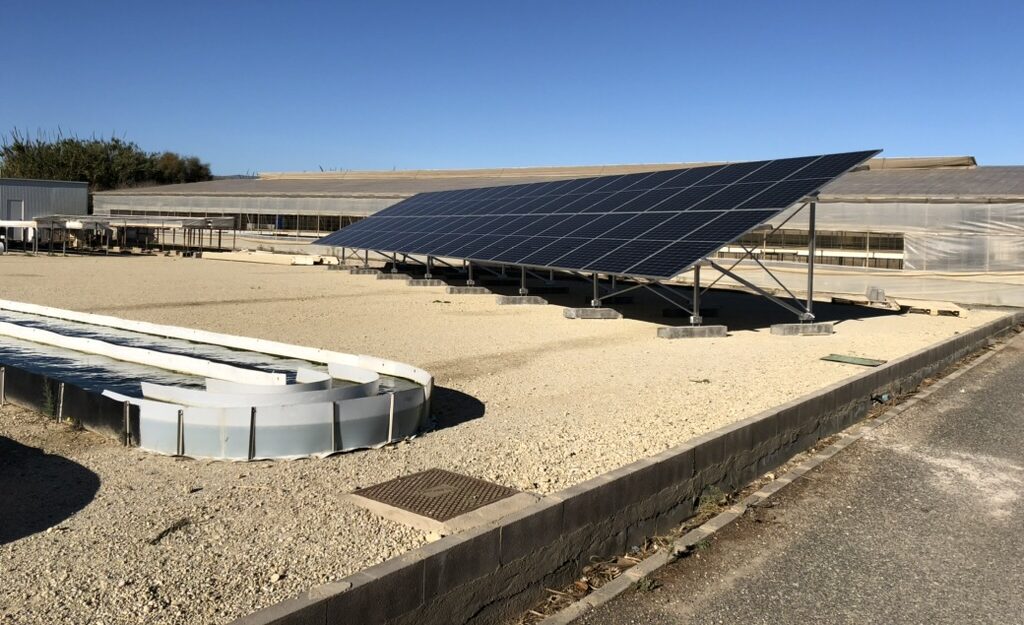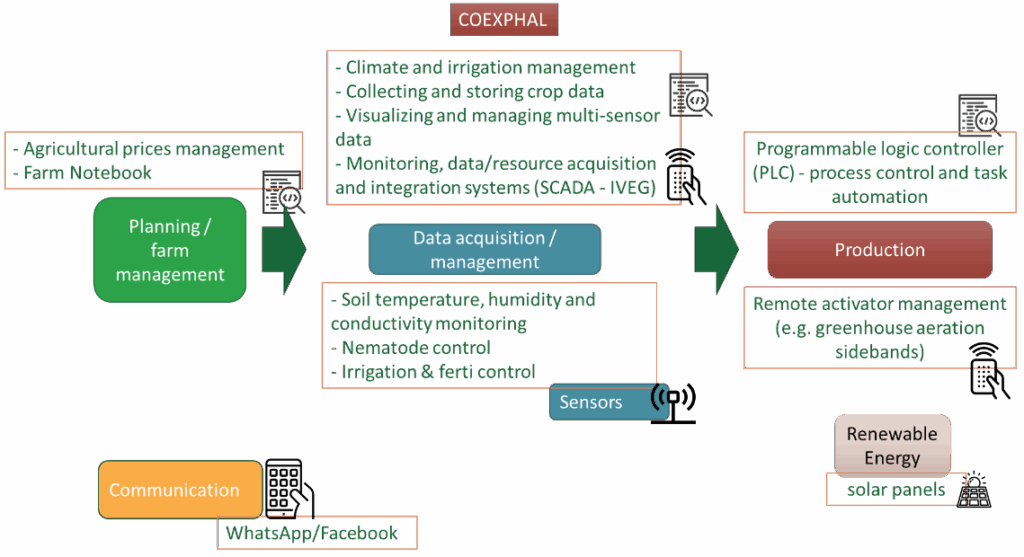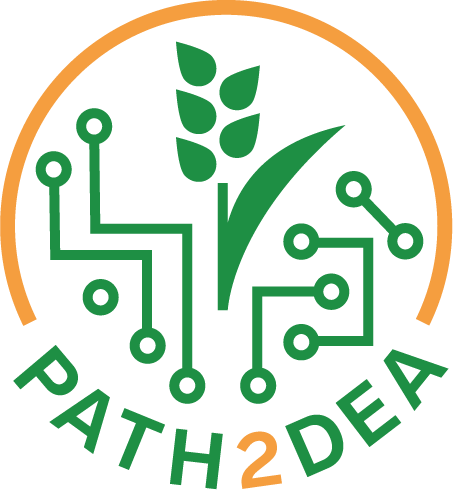Digitalization towards Agroecology in Almería’s Greenhouses

Local context / Issue:
Almeria is a province with important challenges from the point of view of soil and water resource management. Annual precipitation is low at around 220 mm per year. The average temperature on the coast is around 35ºC in summer and 6ºC in winter. It also experiences a high sun exposure of over 3,000 hours per year. The use of technologies to improve the use/management of these resources is key. Consequently, growers must implement a series of changes to the traditional cultivation concept, with the aim of transforming farm activity to more complex systems where renewable energies, automation and digitalization are used to manage different resources, coordinating the flow between the different systems as dictated by the varied nature of the demands and crop requirements (which also fluctuate depending on the time of year and the different varieties used. The main purpose of renewable energies used in this system (experimental farm in the showcase) is photovoltaics and solar thermal. It is for this reason that through this Showcase, Coexphal and the UAL and other showcase stakeholders are working together to identify:
• How to accelerate the transition to sustainable greenhouse horticulture production through the use of renewable energies?
• How to implement DTs for agroecological production in small greenhouses?
• How to deal with the resource/time constraints associated with the use/operation of such DTs?
Showcase Outlook
There are places where sustainability is not just an option but a necessity. A matter of survival, a path to the future. Almería, in the southeast of Spain, knows this well.
This region faces a striking paradox: despite being one of Europe’s driest areas, with less than 300 mm of annual rainfall, it has become a leading supplier of off-season fruits and vegetables to European markets. This remarkable transformation has given rise to what is known as the “Sea of Plastic”, an extensive landscape of greenhouses covering over 40,000 hectares.
For decades, intensive greenhouse farming has been a driver of economic prosperity, employment, and food security. However, it has also generated environmental, climatic, and social challenges. Water scarcity, soil degradation, dependency on chemical inputs, and labor-related issues are just some of the concerns shaping the debate on the future of greenhouse horticulture in Almería.
Faced with these realities, the transformation of agricultural practices is no longer an option, it is imperative. The need to maintain productivity while improving resource efficiency is pushing the sector towards a new era of innovation. In this context, digitalisation, automation, and the integration of renewable energies are emerging as key solutions.
Local farming communities recognise the urgency of this transition, but for many small and medium-scale greenhouse owners, implementation remains a significant challenge. Discussions in recent workshops in Almería have highlighted several critical limitations farmers face: poor connectivity, lack of real-time monitoring, and incomplete yield forecasting. Additionally, the absence of integrated decision-making systems prevents farmers from optimising their production and adopting more sustainable management strategies. “Innovation doesn’t replace the farmers—it empowers them,” expressed one workshop participant.
The path forward is clear. Digital solutions must not only enhance efficiency and productivity but also align greenhouse farming with agroecological principles, reducing chemical inputs, improving resource optimisation, and fostering resilience to climate change. However, for innovation to succeed, it must be accessible, user-friendly, and designed with farmers in mind. They need technologies that enable real-time decision-making, greater transparency in data use, and predictive tools to navigate future challenges with confidence.
These pressing demands are not just about improving agricultural practices; they reflect a growing will to transform the sector. The farmers of Almería are not merely adapting to change, they are shaping it. Because the future of greenhouse horticulture depends on it. Because sustainability is not a choice.
It is a necessity. A matter of survival.
Showcase at a glance
Showcase representative name: COEXPHAL: Association of Organisations of Producers of Fruit and Vegetables of Almería + University of Almería.
Challenge of the showcase: “Renewable energies in protected horticulture (greenhouses)”
Type of production: Fruit & vegetable in greenhouses.
Type of agroecology: Agroecological, organic and conventional.
Participants: 14 participants, mainly farmers (from very small to very large farms), but also advisors and researchers.
Showcase representative: Gladys Sanchez – info(at)coexphal.es
Location: Region of Almería (South of Spain)
Website: https://www.coexphal.es/

Testimonials
- Podcast with the showcase ambassador :
Mapping of digital tools used in COEXPHAL’s showcase

A diversity of tools is used in the showcase, covering most of the range of existing digital technologies and supporting a diversity of operations on the farm. The picture illustrates the main tools for the main processes on the farm. More details about the tools are available in the Digital Tools section (link)
Usability/applicability of DTs: Main drivers, barriers, risks and trends

Drivers: #peer confirmationThe showcase identifies some measures to favour the uptake of DTs:
• Farmers’ networks that finance research processes according to their needs.
• Development of legislation and policies that support digitisation in the organic/agro-ecological production system – European Green Pact.
• Improve government funding through incentives, subsidies.
• Integration of irrigation and energy communities to implement technology.
• Involvement of cooperatives and producer associations in the digitalisation process.
• Training farmers in technologies related to organic/agroecological agriculture.
• Collaboration between different actors, such as researchers, private companies, administration, farmers, universities, etc.
• Bringing digital technologies closer to farmers through on-site demonstrations and demonstrating benefits.
Coexphal workshop attendees really put forwards the role of administration/policy (improve subsidies), the importance of multi-actor DTs co-construction (involve irrigation & energy experts to implement technology? make farmers co-finance research according to their need?) and the way tools are introduced to farmers (on-site demonstrations? Trainings dedicated to tools for organic/agroecological agriculture? Involve cooperative and producers’ associations in the digitalisation process?) as drivers.

Barriers: #lack of collaboration/knowledge/training #ROI & cost As barriers, lack of information & training comes up, as well as high costs in regard to low investment capacity of small producers. Like in other workshops workload is mentioned but here a specific connection with advisors is done: indeed, technicians in charge of farm advisory services are also concerned by increased tasks and workload. Moreover, if collective action was considered as a driver, the splitting of the sector makes it difficult. Advisors and researchers indicated that the main reasons why farmers do not use digital technologies are lack of knowledge about existing technologies and awareness/confidence about their benefits, high cost and complexity in understanding how they work. Researchers mentioned the lack of investment plans and training, and inappropriate equipment for small farms. According to the 2 technology providers, the main reason why producers do not use digital technologies is due to the many devices that would be needed to carry out a good control of the farm and interoperability between them is presented as a problem, thus complicating the interpretation of the data.

Risks: #dependency #data security #splitting due to high costDependence (on technology & companies), misuse/loss of data, costs/low profitability & energy consumption (which is against agroecology preoccupations) and loss of jobs is highlighted.

Looking to the future/trends: #automation & roboticsThis workshop focuses on the use of renewable energy technologies, mainly photovoltaic and solar thermal, in fruit and vegetable greenhouses to improve the use/management of resources (water, energy…), one of the key principles of agroecology. The challenge is to adapt these technologies to small greenhouses, most of them with an area of less than 2 hectares. This workshop has interest about renewable energy technologies.
The added value of the used digital tools and technologies
When grouped according to specific management activities, digital tools and technologies become key enablers of the agroecological transition. Their combined use supports more resilient and sustainable farming practices. Explore how digital tools and technologies enhance this showcase management—step through the timeline of its core activities.
More details about the tools are available in the Digital Tools section (link).
Protected horticulture (greenhouse)
What do farmers from this showcase expect as improvement or new function for digital tools to enhance their transition to more agroecological practices?
Participants were interested in advice for production suggested by apps (with AI for instance), they are interested in robotisation too (to acquire data automatically). They see interest in integrated tools too (integrated meteorological stations, sensors…), which include many options. The same for connected tools, interoperable tools: ex: sensors connected to sprayers for automatically adjustment, data acquisition tools connected to the cloud to avoid manual data transfer… They express their wish that tools be more adapted to their specific system (greenhouse production): including a focus expressed on some crop plant varieties and their specific pests and diseases, on fertigation and internal climate regulation, and more robust, reliable. Whatever their needs are, they wish the tool could be cheap, which is sometimes incompatible. They also mentioned an interest regarding Autonomous Guided Vehicles (AGVs).
Direct sales are not particularly common, but they could be increased through digital tools or apps. They can also think of smart labelling in link with quality assessment to evaluate the product and market it to the final client.
More details on the gaps found in the 6 showcases can be explored in the Gap Analysis section (link).

